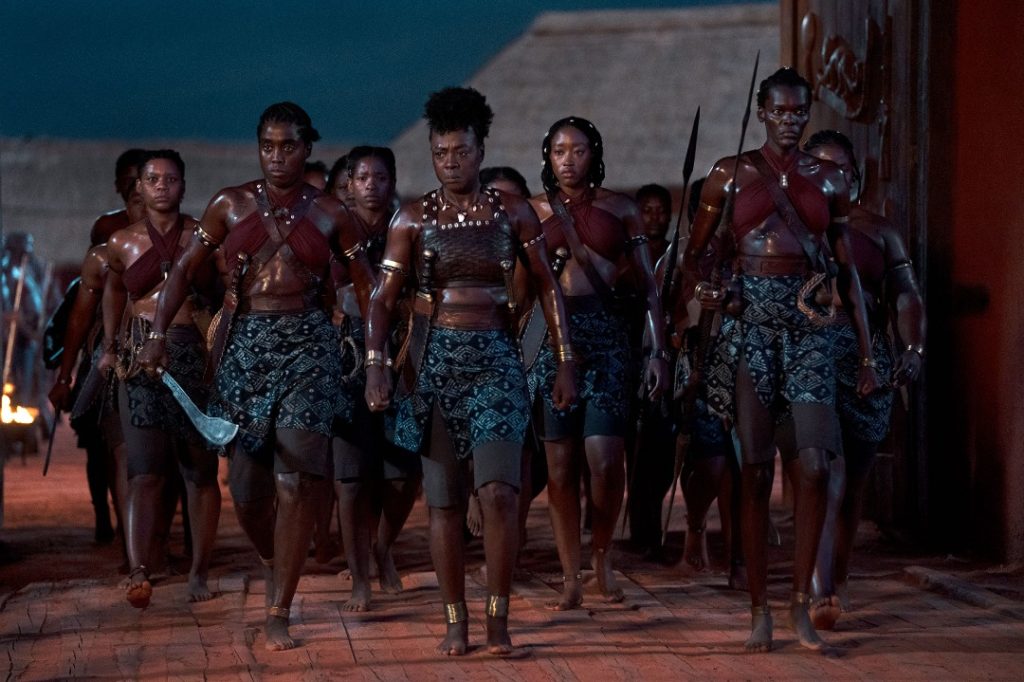The Woman King is a 2022 American historical epic film about the Agojie, the all-female warrior unit that protected the West African kingdom of Dahomey during the 17th to 19th centuries.
Set in the 1820s, the film stars Viola Davis as a general who trains the next generation of warriors to fight their enemies.
It is directed by Gina Prince-Bythewood and written by Dana Stevens, based on a story she wrote with Maria Bello.
The film also stars Thuso Mbedu, Lashana Lynch, Sheila Atim, and John Boyega.
Bello conceived the idea for The Woman King in 2015 after visiting Benin, where the kingdom used to be located, and learning the history of the Agojie.
She recruited Cathy Schulman to develop it into a feature film, pitching it to several studios, who turned it down due to financial concerns. After they met with TriStar Pictures in 2017, the film was greenlit in 2020.
Production began in South Africa in November 2021, shut down due to the COVID-19 Omicron variant a few weeks later, and resumed in early 2022. Polly Morgan was the cinematographer.
During post-production, the musical score was composed by Terence Blanchard, and the editing was completed by Terilyn A. Shropshire.
The Woman King had its world premiere at the Toronto International Film Festival on September 9, 2022, and Sony Pictures Releasing released the film in theaters in the United States on September 16, 2022. Following the festival screening, the film received positive reviews, with critics praising its cast, particularly Davis, and the action choreography.
Other casts are Adrienne Warren, Hero Fiennes-Tiffin, Jayme Lawson, Jimmy Odukoya, Jordan Bolger, Masali Baduza, and Shaina West, among others.
Who were the Agojie?
The first recorded mention of the Agojie dates to 1729. But the unit was possibly formed even earlier, toward the beginning of Dahomey’s existence, when King Huegbadja (reigned circa 1645 to 1685) created a corps of woman elephant hunters.
Alternatively, Hangbe, who briefly ruled as regent following the death of her brother in the early 18th century, may have introduced the women warriors as part of her palace guard.
Either way, the Agojie reached their peak in the 19th century, under Ghezo, who formally incorporated them into Dahomey’s army. Thanks to the kingdom’s ongoing wars, Dahomey’s male population had dropped significantly, creating an opportunity for women to replace men on the battlefield.
Find out more when you watch this intriguing film in a display of fierce, conflict, war, culture, and power.
Source: Wikipedia
